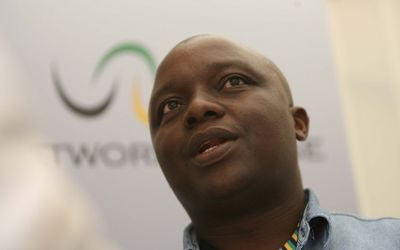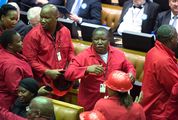THE Independent Communications Authority of SA (Icasa) will reissue an invitation to apply for a free-to-air licence after it rejected all five applications including the Gupta family’s Infinity Media Networks, because of noncompliance with the requirements.
In 2014 five companies — Medo Investments, Levoca 565 trading as Hola Media, Infinity Media Networks, Rubicon Investments, and Change TV Network — responded to Icasa’s invitation to apply, known as an ITA, for free-to-air licences to rival existing player e.tv. The regulator aims to open the market to more competition.
As the country’s only-free-to-air broadcaster, e.tv has urged the regulator not to issue new licences, saying a market study to determine the viability of new broadcasters and a review of the regulations to protect existing players was necessary.
Some of the requirements that the applicants did not meet include providing evidence that they had the financial means for the running of the business.
They also did not provide proof of their capability, expertise and experience in broadcasting, as required.
Acting Icasa chairman Rubben Mohlaloga said after careful consideration of the provisions of the Electronic Communications Act (ECA) and the requirements of the ITA, the regulator decided to refuse all the applicants and decided to open the process anew.
Icasa has not disclosed when it is likely to issue a new ITA. However, prior to inviting new applicants, Icasa planned to run workshops on how to compile an application, said Mr Mohlaloga.
"This is the result of the deficient applications that the authority received, which resulted in the authority being unable to license, following this licensing process," he said.
Mr Mohlaloga said the licensing of additional commercial free-to-air television broadcasting services would stimulate competition and increase the variety of television broadcasting services in SA.
"This process also sought to ensure that historically disadvantaged persons are given an opportunity to participate meaningfully in the sector," he said.

Acting Icasa chairman Rubben Mohlaloga. Picture: THOBEKA ZAZI NDABULA
THE Independent Communications Authority of SA (Icasa) will reissue an invitation to apply for a free-to-air licence after it rejected all five applications including the Gupta family’s Infinity Media Networks, because of noncompliance with the requirements.
In 2014 five companies — Medo Investments, Levoca 565 trading as Hola Media, Infinity Media Networks, Rubicon Investments, and Change TV Network — responded to Icasa’s invitation to apply, known as an ITA, for free-to-air licences to rival existing player e.tv. The regulator aims to open the market to more competition.
As the country’s only-free-to-air broadcaster, e.tv has urged the regulator not to issue new licences, saying a market study to determine the viability of new broadcasters and a review of the regulations to protect existing players was necessary.
Some of the requirements that the applicants did not meet include providing evidence that they had the financial means for the running of the business.
They also did not provide proof of their capability, expertise and experience in broadcasting, as required.
Acting Icasa chairman Rubben Mohlaloga said after careful consideration of the provisions of the Electronic Communications Act (ECA) and the requirements of the ITA, the regulator decided to refuse all the applicants and decided to open the process anew.
Icasa has not disclosed when it is likely to issue a new ITA. However, prior to inviting new applicants, Icasa planned to run workshops on how to compile an application, said Mr Mohlaloga.
"This is the result of the deficient applications that the authority received, which resulted in the authority being unable to license, following this licensing process," he said.
Mr Mohlaloga said the licensing of additional commercial free-to-air television broadcasting services would stimulate competition and increase the variety of television broadcasting services in SA.
"This process also sought to ensure that historically disadvantaged persons are given an opportunity to participate meaningfully in the sector," he said.






















Change: 1.19%
Change: 1.36%
Change: 2.19%
Change: 1.49%
Change: -0.77%
Data supplied by Profile Data
Change: -0.19%
Change: 0.69%
Change: 1.19%
Change: 0.00%
Change: 0.44%
Data supplied by Profile Data
Change: 0.62%
Change: 0.61%
Change: 0.20%
Change: 0.44%
Change: 0.12%
Data supplied by Profile Data
Change: -0.21%
Change: -1.32%
Change: -0.69%
Change: -0.51%
Change: 0.19%
Data supplied by Profile Data